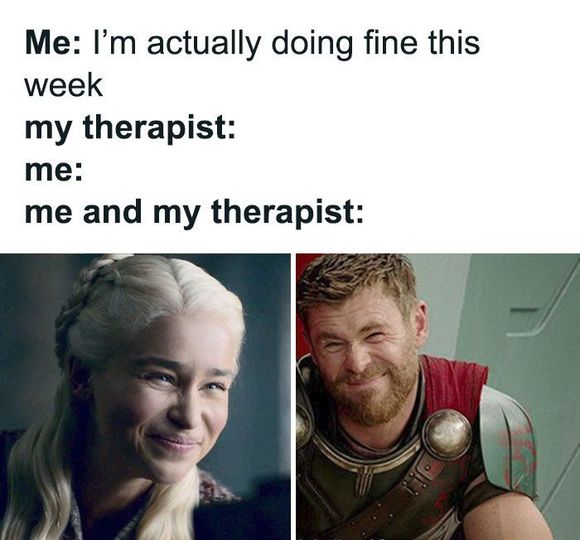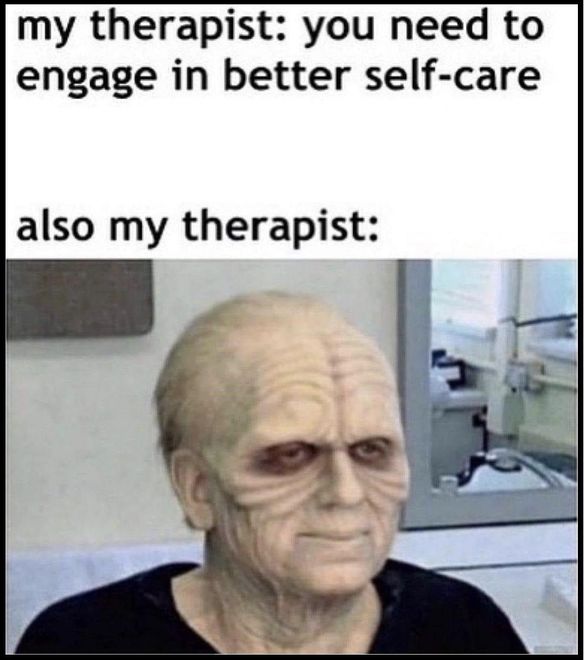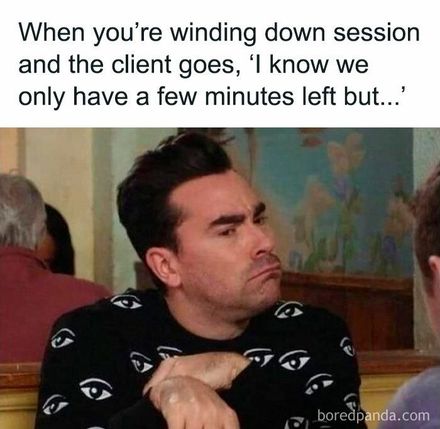It would be an honor to assist you
on your journey to healing
It would be an honor to assist you in your journey to healing
About
Welcome to Benevolent Valkyrie Counseling.
Please don’t compare your experience to anyone else’s. Don’t believe for a moment that your trauma is in any way “less than” someone else’s trauma. Much like grief, the worst experience of trauma that you’ll ever come across is your own. There is no truth to the idea that you are "crazy" or "broken" or "damaged" or "weak." Simply, by nature, people are not meant to be solitary creatures and there are events in this life that we can not always process on our own. Together, we can focus on what your needs are, be it mental, emotional, or spiritual, and get those needs met in a balanced way that supports your values. Let’s embark on this journey together. You deserve to heal and thrive.
Our Team

Sara Jastrzebski, MA, LCMHC, CCTP, NCC
Licensed Therapist & Trauma Treatment Professional
My name is Sara. I am a therapist specializing in the treatment of trauma. I work with individuals who have experienced various forms of trauma, and have a desire to heal from it. Trauma work that I do includes experienced acts of violence, domestic violence, intimate partner violence, childhood sexual abuse, rape and other forms of sexual abuse. I also work with Veterans and First Responders.
I’m passionate about creating a safe, non-judgmental space where you can explore your feelings and experiences. Whether you’re dealing with anxiety, panic, depression, or past trauma, my goal is to empower you to find your own path to healing.
My approach is rooted in kindness and empathy. I believe that every individual innately possesses the strength to overcome obstacles to their healing, and I am here to guide you through that process. Together, we can work to develop and build resilience, practical skills and new perspectives that can allow you to heal and grow, helping you cultivate a more mindful and fulfilling life.
My journey to this profession has been deeply personal. I’ve faced my own challenges and understand the complexities of healing from life experiences and past traumas. I am the owner of Benevolent Valkyrie Counseling. I am a Licensed Clinical Mental Health Counselor (LCMHC), a Certified Clinical Trauma Professional (CCTP), and a Nationally Certified Counselor (NCC).

Freyja
Chief Cuddle Officer
(Therapy Dog in Training)
Freyja is our resident ray of sunshine and an essential part of our therapy team, even if she naps through most meetings. A small white pup with a big heart, Freyja is currently training to become a certified therapy dog, though she’s already convinced she runs the place.
Named after the Norse goddess of love and beauty, Freyja brings calm, comfort, and a hefty dose of canine charm. But like many pandemic pups, she’s a bit of an anxious “COVID baby” and a certified velcro dog. She’s still building confidence with some of her therapy skills and may come off a little unsure or send mixed signals when greeting new people. But don’t be fooled, her wagging tail and eager body language always show she’s genuinely happy to see you.
Freyja enjoys greeting clients with a toy in her mouth, sitting in oddly human positions, and supervising sessions from her plush throne (a.k.a. the couch). Her love language is quality time—and cheese. Especially cheese. She’s always happy to sit by your side and practice her skills in exchange for a nibble of a cheese stick (helpfully located in the fridge drawer in the kitchen).
Whether she’s quietly lounging nearby or offering a paw during a tough moment, Freyja brings warmth, joy, and a fluffy, slightly clingy presence that reminds us all to take a breath and maybe laugh a little.
She’s still learning, but she’s already an expert in unconditional love (and snack detection).
FAQ
This is paragraph text. Click it or hit the Manage Text button to change the font, color, size, format, and more. To set up site-wide paragraph and title styles, go to Site Theme.
This is paragraph text. Click it or hit the Manage Text button to change the font, color, size, format, and more. To set up site-wide paragraph and title styles, go to Site Theme.
What insurances do you accept? What forms of payment do you accept?
IMPORTANT STUFF HERE
Effective January 1, 2026, Sara is Out-of-Network
Insurance is less stressful when we understand the rules.
Insurance can be intimidating and confusing and frustrating. No one should ever be caught unaware or surprised by a bill. Everyone should be fully informed and have a complete understanding of their options and what they mean. Sara is always very happy to set aside time to talk about and explain anything related to insurance, benefits, terminology, costs per visit, per month, per year, and answer any questions or address any concerns you may have. Just ask!
To use insurance or to not use insurance?
An individual may choose to be a “cash pay” client. That means that they choose to pay for the full cost of services, out-of-pocket, without any reimbursement. Why? This is often for privacy reasons, but anyone has the right to choose to not utilize their insurance benefits if they don’t want to. While there are legal and ethical limits related to confidentiality, an individual may not want others to have access to their psychotherapy records which may contain sensitive information about them. One example may be that your insurance company has the right to obtain information from your chart if they are paying for your services. Consider your privacy needs carefully.
If you decide that you do not want to use your insurance, Sara is happy to discuss her rates with you. If you have concerns about the costs of therapy with Sara, she is happy to discuss your options based on your needs; this may include a referral to another provider.
Understanding your insurance:
When you use any medical services, according to the insurance plan you have, typically your insurance pays a portion of the overall cost and you are responsible to pay the difference; an amount referred to as a “deductible,” “co-insurance,” or “copay.” Insurance often refers to this arrangement as “cost sharing.” Every plan is different, even if obtained through the same source. It’s very important that you understand how your plan is laid out and the details of your benefits.
What is the difference between In Network and Out-of-Network?
Health insurance companies often have a network of doctors and hospitals that have agreed to provide services at reduced rates. These providers are known as “in-network” (INN). For various reasons, some providers never enter into an agreement and some providers decide to terminate their agreement with insurance companies. These providers are known as “out-of-network” (OON).
Receiving care that is OON versus INN does not simply mean that you are 100% financially responsible for the cost of your care and that you can not recoup any portion of your costs. Knowing and understanding your plan benefits is important.
When you have a plan with OON benefits it actually means that you pay your provider directly at the time of service, your provider gives you the form necessary for you to be reimbursed by your insurance, you simply submit the form electronically, and you receive your reimbursement within a brief time. The typical turnaround is about 2 weeks and you can have the funds directly deposited to your account of choice.
How do your plan costs really differ?
In-Network (INN) Providers:
Example: You have INN benefits, your provider is INN, and you have a $25 copay; you pay $25 “out-of-pocket" at the time of your visit. *This example is just to illustrate the general idea, all plans are different.
Out-of-Network (OON) Providers:
Example: You have OON benefits with a 20% cost to you and 80% reimbursement. You pay $150 or $175 at the time of your visit, your insurance reimburses you 80%, and your total “out-of-pocket” cost is $30 or $35, respectively. *This example is just to illustrate the general idea, all plans are different.
Know your insurance plan details:
Most insurance plans have a specific percentage reimbursement rate for OON. If they don’t, you may have the option to choose a plan more suitable for your needs that includes OON benefits, usually during Open Enrollment which happens annually around October/November for employer plans, or before January 1st for Marketplace plans.
How to File for Insurance Reimbursement After Your Therapy Session
How to File for Insurance Reimbursement After Your Therapy Session
Your therapist is no longer billing insurance directly. But you can still get reimbursed by your insurance provider if you have out-of-network mental health benefits. Here’s how to do it — step by step.
✅ Step 1: Check Your Out-of-Network Coverage
Before meeting with your therapist, call the number on the back of your insurance card (usually
under “Member Services”) and ask:
- “Do I have out-of-network mental health coverage?”
- “What is the reimbursement rate for out-of-network psychotherapy?”
- “Do I need to meet a deductible first? And does it apply to mental health benefits?”
- “Where do I send out-of-network claims?”
- “Do I need a special claim form?”
Take notes and save this information.
✅ Step 2: Pay for Your Session
You’ll pay your therapist directly after each session. You’ll receive a Superbill (an itemized
invoice) that includes all the information your insurance company needs.
✅ Step 3: Fill Out a Claim Form (If Required In Addition to the Superbill)
Most insurance companies require a claim form, which you can usually download from their
website. Look for:
- “Out-of-Network Claim Form” or
- “Member Reimbursement Form”
Examples:
- Blue Cross Blue Shield: www.bcbs.com
- UnitedHealthcare: www.uhc.com
- Aetna: www.aetna.com
✅ Step 4: Gather Your Superbill
You’ll receive a Superbill from your therapist after each session. This is what you’ll send to
your insurance company.
Make sure it includes:
✔️ Your name and date of birth
✔️ Therapist’s name, license number, and NPI
✔️ Therapist’s address and phone number
✔️ Diagnosis code (ICD-10)
✔️ Procedure code (CPT — e.g., 90834 or 90837)
✔️ Date of service and session length
✔️ Total fee paid per session
✔️ Proof of payment (or a note saying “Paid in Full”)
If anything is missing, let your therapist know before submitting.
✅ Step 5: Submit Your Claim
Submit your claim form (if required) and Superbill to your insurance company.
You can usually submit it in one of three ways:
1) Upload online through your insurance member portal
2) Mail it to the claims address listed on your insurance card
3)Fax it (if listed as an option)
Keep a copy of everything you send!
✅ Step 6: Watch for Reimbursement
Your insurance will process your claim and (if approved) send you a check or apply the payment to your account. This usually takes 2–6 weeks, depending on the company. If you haven’t heard back in that time, follow up with their claims department.
Quick Tip:
You can often save time by submitting multiple sessions on one claim. Just make sure all the sessions are listed clearly on your Superbill.
Need Help?
If you’re unsure about any of the steps, reach out to your insurance company first.
What is CBT?
Cognitive Behavioral Therapy (CBT)
A type of talk therapy that focuses on how our thoughts, feelings, and behaviors are connected. The main idea behind CBT, is that our thoughts influence our feelings and our actions, and by changing negative or unhelpful thoughts or thought patterns, we can improve our feelings and behaviors.
Cognitive: The focus is on our thoughts; irrational or unhelpful thoughts versus rational or helpful thoughts.
Behavioral: The focus is on our actions; how our actions are influenced by our thoughts and feelings.
Cognitive Behavioral Therapy Process
Albert Ellis’ ABC Model (also ABCDE) illustrates CBT nicely:
A: Activating Event (something happens to us or around us)
B: Belief (the Event causes us to have a Belief, either rational or irrational)
C: Consequence (the belief leads to a Consequence, with rational beliefs leading to healthy Consequences and irrational beliefs leading to unhealthy Consequences)
D: Disputation (if we have held an irrational belief which has caused unhealthy consequences, we must learn to Dispute the irrational in order to turn it rational)
E: Effect (the Disputation has turned the irrational Belief into a rational Belief; as a result we now have healthier Consequences because of our rational Belief)
Sometimes homework is given with CBT; for example, journaling thoughts or practicing skills learned in session, such as thought stopping or challenging irrational thoughts. Overall, CBT is practical and focused on helping individuals develop skills to better manage challenges, increase distress tolerance and improve overall mental wellbeing.
What is MBSR?
Mindfulness-Based Stress Reduction (MBSR)
Is a program designed to help people manage stress and improve their well-being through mindfulness practices.
Mindfulness: At its core, MBSR teaches mindfulness, which is defined as non-judgmental observation; observing your experience in the present moment without judging it or trying to modify it, to experience the moment as it is.
Structure: MBSR typically includes weekly group sessions, daily home practices, and guided meditations.
Stress Management: The primary goal of MBSR is to help individuals reduce stress and manage difficult emotions. By practicing mindfulness, people can become more aware of their stress triggers and learn to respond to them in a calmer, more balanced way.
Research-Based: MBSR is backed by scientific research showing its effectiveness in reducing symptoms of anxiety, depression, chronic pain, and other stress-related conditions.
Practical Applications: The skills learned in MBSR can be applied in everyday life, helping individuals handle challenges with greater resilience and awareness.
You can click the Resource button and find a video of guided meditation.
What is EMDR?
Eye Movement Desensitization and Reprocessing Therapy (EMDR)
Is a therapy modality designed to help individuals process and heal from traumatic experiences. Developed in the late 1980s by Dr Francine Shapiro, studies have shown that EMDR Therapy is particularly effective for those suffering from post-traumatic stress disorder (PTSD), but it can also help with anxiety, depression, and other emotional difficulties.
How Does EMDR Therapy Work?
EMDR Therapy utilizes a structured eight-phase protocol that includes:
History and Treatment Planning: The therapist gathers information about the client’s history and specific issues they want to address.
Preparation: The therapist explains the EMDR process and helps the client develop coping strategies to manage any distress that may arise.
Assessment: The client identifies specific traumatic memories to focus on during the therapy and the associated negative beliefs.
Desensitization: The client is guided to recall the traumatic memory while simultaneously engaging in bilateral stimulation, usually through guided eye movements. This helps reduce the emotional charge of the memory.
Installation: The therapist helps the client replace negative beliefs related to the trauma with more positive, empowering beliefs.
Body Scan: The client is encouraged to notice any physical tension related to the memory, allowing for further processing and release.
Closure: The session concludes with relaxation techniques, helping the client return to a state of calm.
Reevaluation: In subsequent sessions, the therapist and client review progress and address any remaining issues.
Benefits of EMDR Therapy
Rapid Processing: Many clients experience significant relief after just a few sessions.
Holistic Approach: EMDR addresses both the emotional and physical responses to trauma.
Empowerment: Clients often report feeling more in control and resilient after therapy.
Is EMDR Therapy Right for You?
If you’re struggling with trauma, anxiety, or negative beliefs, EMDR Therapy may be a beneficial option. It's important to consult with a reputably trained EMDR Therapy provider who can guide you through the process in a safe and supportive environment.
Important EMDR Therapy Resources
If you are interested in more information, please see the links below.
EMDRIA.org
emdr.com
Let's talk!
Business Hours
- Mon - Thu
- -
- Fri - Sun
- Closed
By appointment only - In person or via telehealth
Contact Us
We will get back to you as soon as possible.
Please try again later.
Therapy Humor





RESOURCES
Disclaimer:
The apps, websites, videos, and YouTube channels recommended on this site are shared for informational purposes only. I am not affiliated with, sponsored by, or in partnership with any of these third-party platforms. These resources are simply tools that I have found potentially helpful and that may support clients in their personal growth or therapeutic journey. Use of these resources is optional and should not be considered a substitute for professional mental health care.
The Happiness Lab
You might think you know what it takes to lead a happier life… more money, a better job, or Instagram-worthy vacations. You’re dead wrong.
Based on the psychology course she teaches at Yale — the most popular class in the university’s 300-year history — The Happiness Lab with Dr. Laurie Santos will take you through the latest scientific research and share some surprising and inspiring stories that will change the way you think about happiness. Brought to you by Pushkin Industries.
How to ADHD Youtube
Have ADHD? Know someone with ADHD? Want to learn more? You're in the right place!
Most weeks I post a new video with tips, tricks & insights into the ADHD brain.
This channel is my ADHD toolbox -- a place to keep all the strategies I've learned about having & living with ADHD. It's also grown into an amazing community of brains (& hearts!) who support & help each other. Anyone looking to learn more about ADHD is welcome here!
Headspace App
Mental health resources and expert-led guidance to help you take better care of yourself
Checking in with yourself is important for your mental health. So learn to pay attention to your state of mind — detecting everyday anxiety, changing moods, or conflicting feelings -- and turn to Headspace’s tools and evidence-based practices.
Finch App
Your new self care best friend! Take care of your pet, while taking care of yourself!
Loddlenaut App
Loddlenaut is an ocean cleanup adventure set on a vibrant alien planet. Play as an interstellar custodian who is tasked with cleaning up the pollution left behind by a spacefaring mega-corporation. Befriend local axolotl-like creatures and explore sunken corporate ruins as you revive the planet’s lush ecosystems.
Calm App
Find Your Calm
Our goal is to help you improve your health and happiness.
Bettersleep
Fall asleep faster,
wake up energized
Music, meditations, and stories backed by the science of sleep
Guided Meditation
Jon Kabat-Zinn, Ph.D. is internationally known for his work as a scientist, writer, and meditation teacher engaged in bringing Mindfulness into the mainstream of medicine and society. He is Professor of Medicine emeritus at the University of Massachusetts Medical School, where he founded its world-renowned Mindfulness-Based Stress Reduction Clinic (in 1979), and the Center for Mindfulness in Medicine, Health Care, and Society (in 1995).
Helpful Resource List for our Wounded Heroes
- American Military University: 1.877.755.2787 www.amu.apus.edu
- American Foundation for the Blind: 212.502.7600 www.afb.org
- Amputee Coalition of America: 888.267.5669 www.amputee-coalition.org
- AMVETS: 1.877.726.8387 www.amvets.org
- Army Emergency Relief: 866.878.6378 www.aerhq.org
- Blinded Veteran Association: 1.800.66.9.7079 www.bva.org
- Brain Injury Association of America: 1.800.444.6443 www.biausa.org
- Brain Injury Resource Center: 206.621.8558 www.headinjury.com
- Coalition of Salute America’s Heroes: 888.447.2588 www.saluteheroes.org
- Computer/Electronic Accommodations Program (CAP): 703.614.8416 www.cap.mil
- Defence and Veterans Brain Injury Center: 800.870.9244 www.dvbic.dcoe.mil
- Department of Veterans Affairs: 1.800.827.1000 www.va.gov
- Disability: 866.633.7365 www.disability.gov
- Disabled Veterans of America: 1.877.426.2838 www.dav.org
- Give an Hour: www.giveanhour.org
- Gov Benefits: 800.333.4636 www.benefits.gov
- Guide Dogs: 800.459.4843 www.guidedogsofamerica.org
- Helmets to Hardhats: 866.741.6210 www.helmetstohardhars.org
- Hire Heroes USA: 844.634.1520 vets@hireheroesusa.org www.hieheroes.org
- Homes for our Troops: 866.787.6677 www.hfotusa.org
- Job Fairs/Possible Employment: www.recruitmilitary.com or www.hireveterans.com
- Marine 4 Life: 866.645.8762 www.marineforlife.org
- Military One Source: 800.342.9647 www.militaryonesource.mil
- Military Severely Injured Center: 888.774.1361 www.military.com/support
- National Center for PTSD: www.ptsd.va.gov
- National Family Caregivers Association: 202.454.3970 www.caregiveraction.org
- National Military Family Association: 703.931.6632 www.militaryfamily.org
- National Resource Center on Supportive Housing and Home Modification: 213.740.1364
- National Resource Directory: 800.827.1000 www.nrd.gov
- National Veterans Legal Services Program: 202.265.8305 www.nvlsp.org
- Navy Marine Corps Relief Society: 800.654.8364 www.nmcrs.org
- Operation Family Fund: 760.793.0053 www.operationfamilyfund.org
- Operation First Response: 888.289.0280 www.operationfirstresponse.org
- Operation HomeFront: 800.722.6098 www.operationhomefront.org
- Paralyzed Veterans of America: 800.424.8200 www.pva.org
- Project Return to Work: 720.359.1541 www.return2work.org
- Red Cross Emergency Communication Svc: 877.272.7337 www.redcross.org/find-help/military-families
- Sentinels of Freedom Scholarship Foundation: 925.380.6342 www.sentinelsoffreedom.org
- Navy Safe Harbor Foundation: http://www.safeharnorfoundation.org
- Serving those Who Serve: www.stws.org
- Soldiers Angels: 210.629.0020 www.soldiersangels.org
- Suicide Hotline: 1.800.273.8255 www.veteranscrisisline.net OR TEXT to Chat: 838255
- Swords to Plowshares: 415.252.4788 www.swords-to-plowshares.org
- The American Legion: 202.861.2700 www.legion.org
- The Brain Injury Network: 707.544.4323 www.braininjurynetworl.org
- The Military Order of the Purple Heart: 703.642.5360 www.purpleheart.org
- The National Amputation Foundation: 516.887.3600 www.nationalamputation.org
- Tragedy Assistance Program: 800.959.8277 www.taps.org
- Traumatic Brain Injury Survival Guide: 231.929.7359 www.tbiguide.com
- Unite Spinal Association: 718.803.3782 www.unitedspinal.org
- USA Cares: 800.773.0387 www.usacares.org
- Veterans of Foreign Wars: 816.756.3390 www.vfw.org
- Vets4vets: www.vets4veterans.com
- Wounded Soldier and Family Hotline: 1.800.984.8523 www.armymedicine.mil
- Wounded Warrior Regiment Call Center: 877.487.6299 www.woundedwarriorregiment.org
- Tips/Help for Spouses/Families: 405.535.1925 www.veterensfamiliesunited.org
- USO: 888.484.3876 www.uso.org
- Tips/Help for Spouses/Families: 405.535.1925 www.veterensfamiliesunited.org
- Veterans of Foreign Wars: 816.756.3390 www.vfw.org



